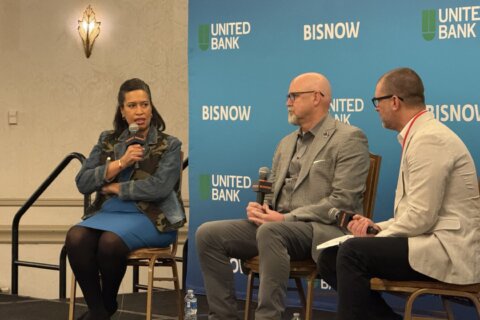This video is no longer available.
Hundreds of Washington Post employees were not reporting the news on Thursday. Instead, they picketed the newspaper outside of its K Street offices in D.C.
The strike comes as members of the Washington Post Guild walked out for 24 hours after months of negotiations with the paper continue to fall short.
Katie Mettler, a local criminal justice reporter for the Post, said the paper has been negotiating with the union in “bad faith” and the one-day strike is meant to bring attention to that fact.
“We would all much rather be doing our jobs today, the work we care deeply about, serving the people we care deeply about. But unfortunately, we had to take this historic move,” Mettler said.
The union represents not only reporters, but also editors, cartoonists, visual journalists, advertising salespeople, and circulation drivers.
As the union workers picketed under the shadow of a giant inflatable rat they named “Scabby,” they chanted: “What do we want? Fair pay. When do we want it? Yesterday.”
It’s the first major labor protest at the Post in 48 years.
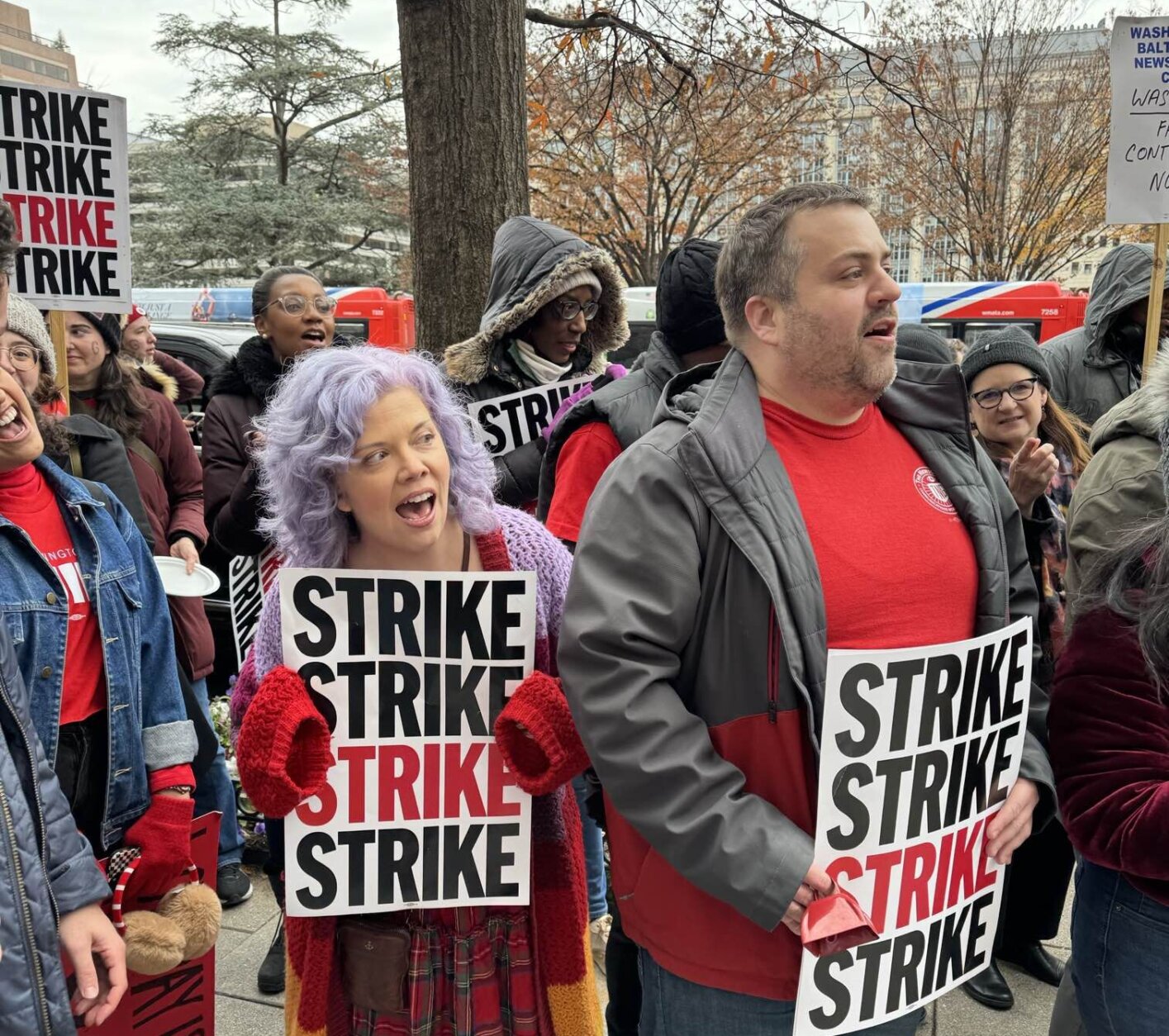
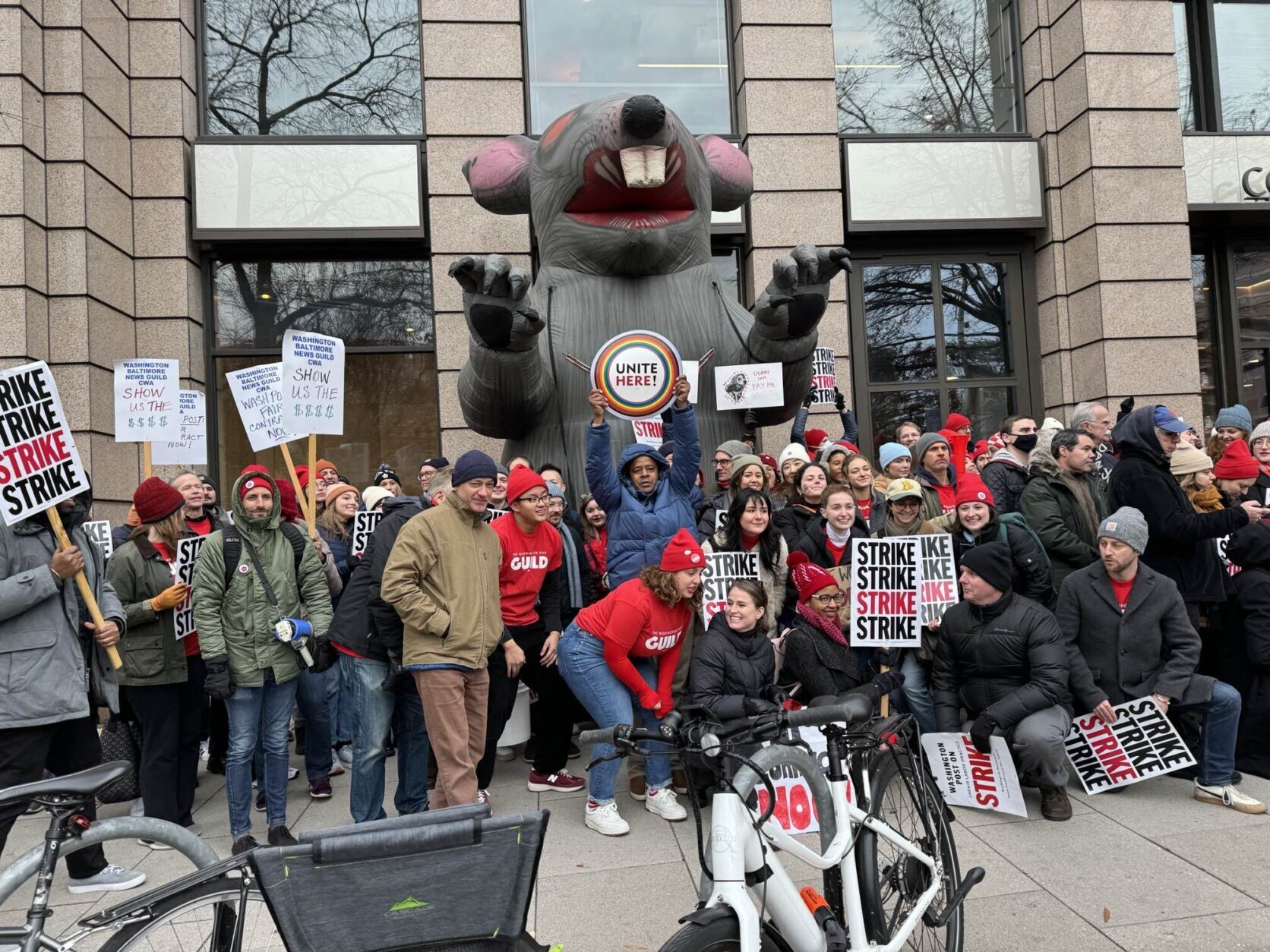
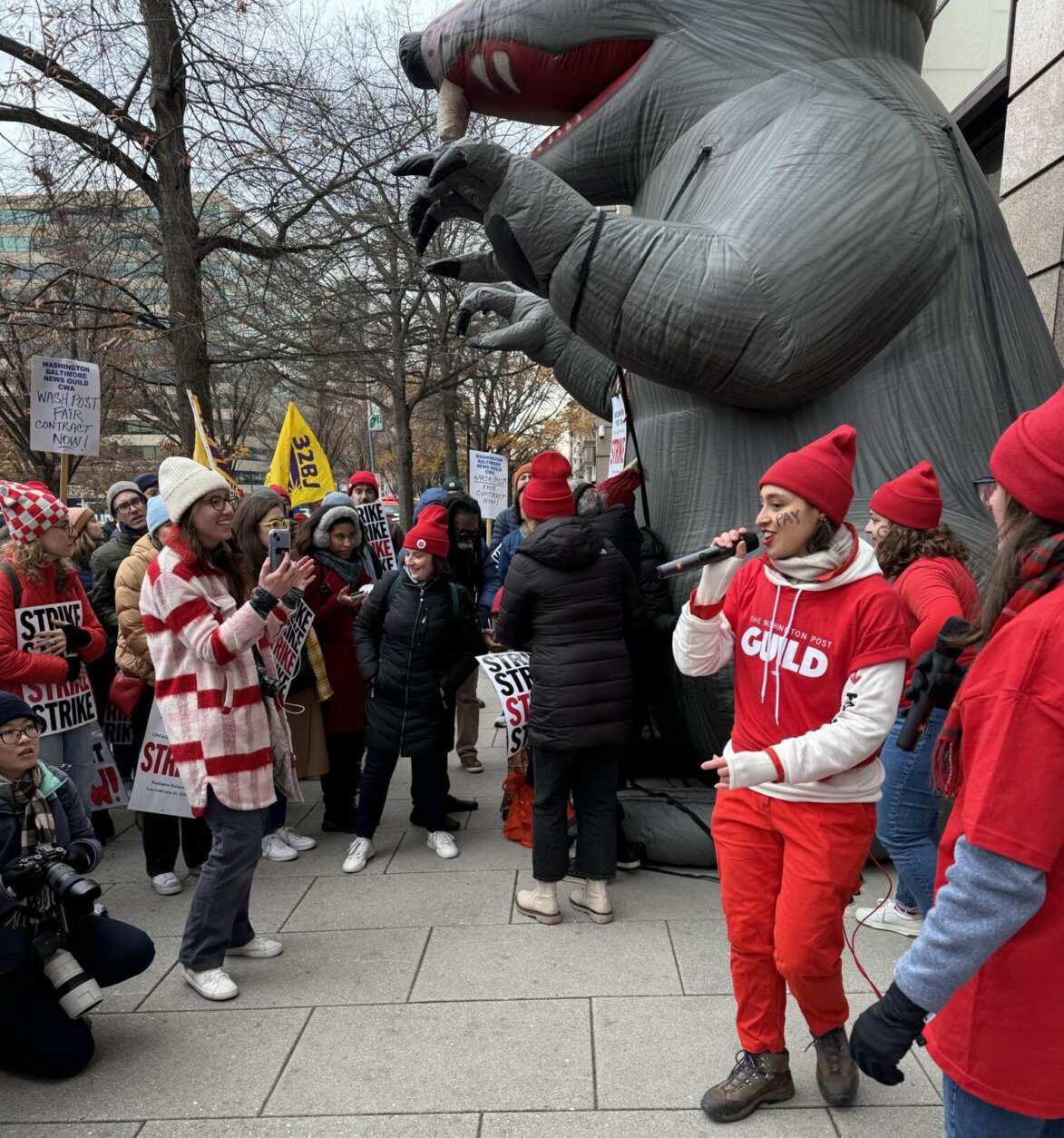
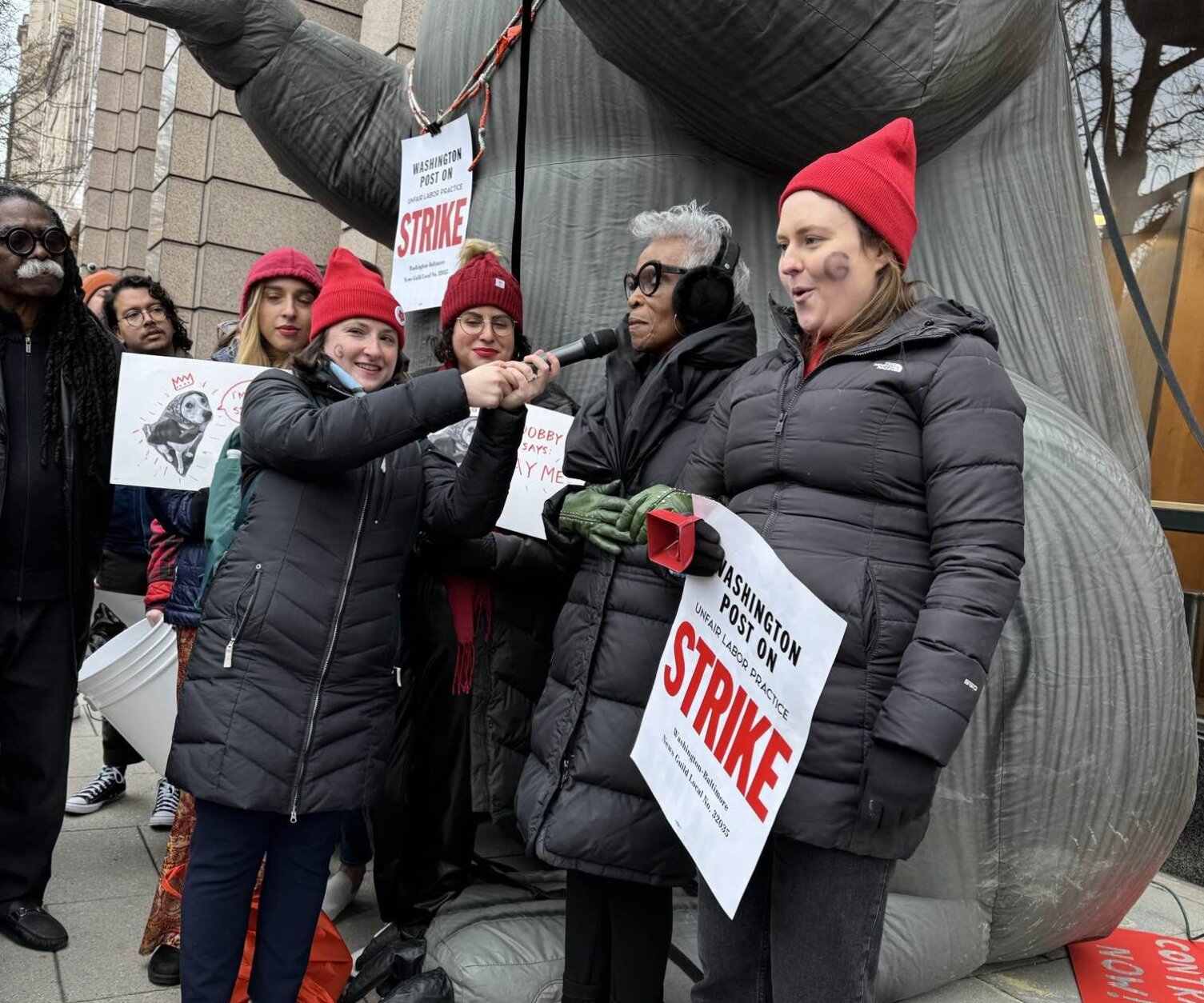
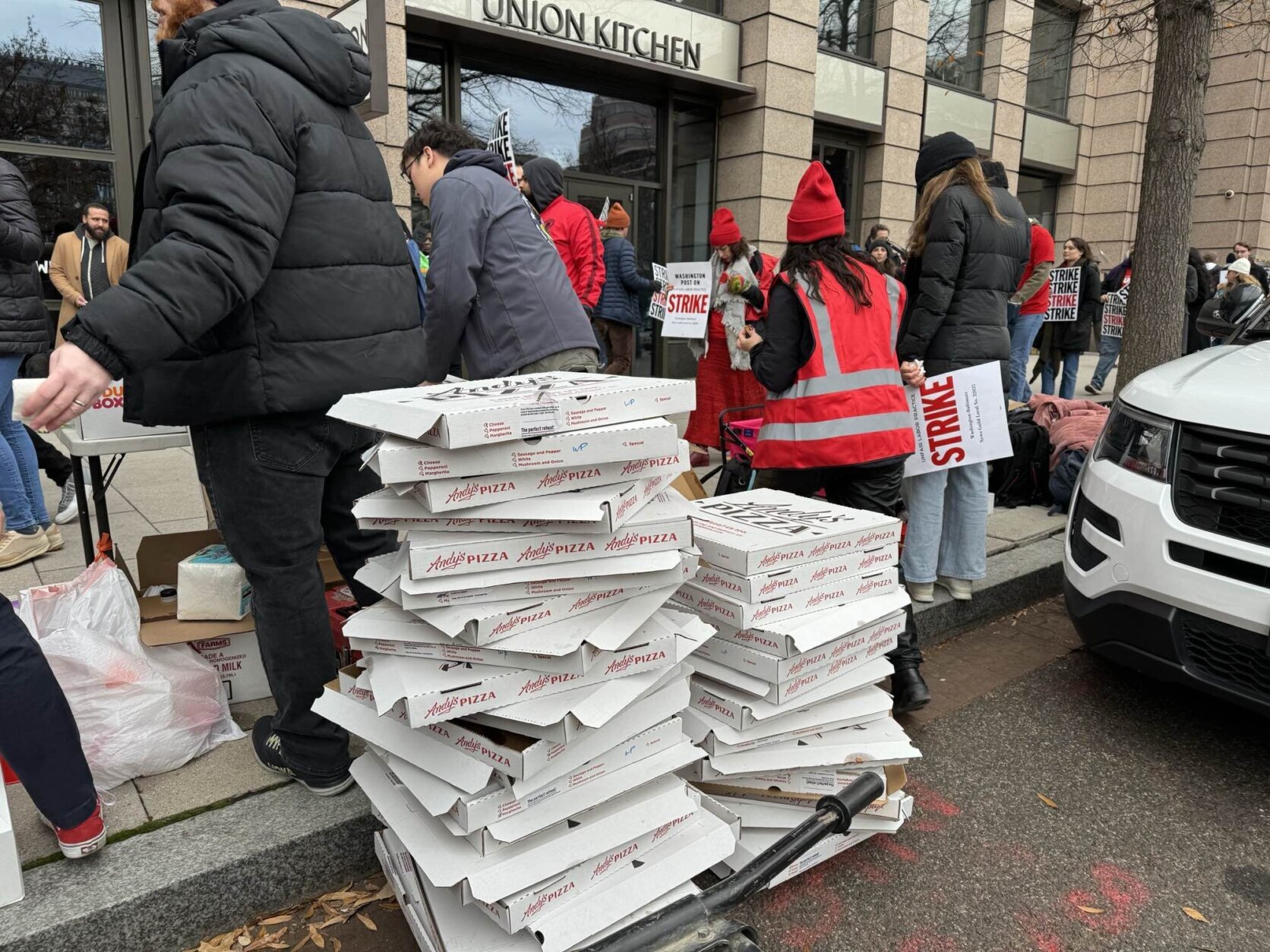
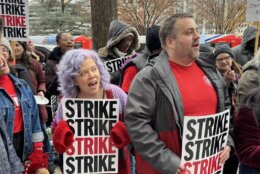
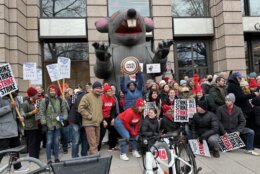
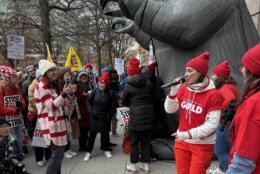
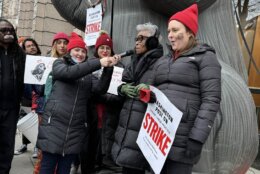

The Post is owned by billionaire Jeff Bezos and, in a statement to WTOP, the publication said it respects the rights of Guild-covered workers to engage in the strike.
“We will make sure our readers and customers are as unaffected as possible. The Post’s goal remains the same as it has from the start of our negotiations: to reach an agreement with the Guild that meets the needs of our employees and the needs of our business,” a Post spokesperson said.
The union members said this is also about saving jobs. Workers claim the paper is threatening layoffs if not enough people take “voluntary buyouts” which were offered to more than 200 employees.
“The Post is our local newspaper here in D.C. and the fact that almost the entire local staff got offered a buyout is, frankly, what everyone should be appalled at,” said Zainab Mudallal, an opinion editor at the paper.
Mudallal called on the publication to provide more mental health services to employees as well.
“The fact that the Post is not willing to budge on any sort of mental health resources for their employees is a shame,” Mudallal said. “I really do believe that [if] we’re asked to be strong and for us to report and edit and do what we need to do as journalists, we need to be invested in as well.”
For Post climate reporter Sarah Kaplan, she said the minimum pay for entry level employees, such as copy aides, is “atrocious” and that many cannot live in D.C. with the salaries offered.
She said the strike is meant to give the company an idea of what it would be like without the employees, which she said are “the heart and soul” of The Washington Post.
“The company is feeling what it means to be without these employees,” she said. “The Post is nothing without us and we deserve a fair deal.”
Among those braving the cold to support the Post employees was the paper’s first Black female reporter Dorothy Butler Gilliam.
The crowd erupted into cheers when Gilliam told them, “You will win!”




